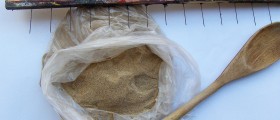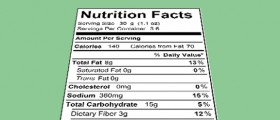What is Olestra and When Should it be Used?
Olestra is a chemical substitute for fat, and it belongs to the group of fats that are not absorbed in the body. Even though it was not approved by the Food and Drug Administration as a cholesterol-reducing drug, which is what Procter & Gamble tried to accomplish some 35 years ago, it was approved as a food additive approximately 20 years later.
This product is also known under the brand name Olean, and today it is used as a food additive that is added to such products that contain high amounts of fat, and it can be found in packaged food products. Potato chips are a typical example of fast food in which it has been used, and since it does not add any fat to the products, it is regarded as a healthy choice when food is in question.
However, there is another side of the story, and it refers to the unwanted effects of this allegedly healthy food additive. Certain side effects have been reported, and we will mention those that are the most concerning of all.

How Safe is it and are there any Side Effects?
First of all, it is known that foods that contain this additive prevent the absorption of particular vitamins, among which are vitamins D, E, A, and K, which is why they are added to the product in question.
In case a person consumes a lot of food that contains Olestra, the levels of vitamins in question will likely be decreased. Insufficient amounts of vitamins may lead to many health issues.
Besides vitamins, Olestra also can prevent the absorption of carotenoids, pigments that plants produce naturally and that are considered very beneficial antioxidants. Not only does it prevent the absorption of this pigment from the food to which Olestra is added, but it also prevents its absorption from other foods that naturally contain it, such as fresh fruits and vegetables.
- Histological evaluations performed after long-term feeding studies have shown no indications that olestra causes injury to the gastrointestinal mucosa.
- Olestra is not metabolized by the colonic microflora, and has no meaningful effects on the metabolic function of these organisms.
- Studies of gastrointestinal transit have shown that the consumption of olestra with food does not affect gastric emptying, or small or large bowel transit times.
- Olestra does not affect the absorption of macronutrients, water-soluble vitamins or minerals. It causes a dose-responsive decrease in the availability of the fat-soluble vitamins A, D, E and K; however, this potentially adverse effect is offset by the addition of vitamins to olestra-containing foods.
- Olestra has no consistent effect on the amount of total bile acids excreted in the faeces, and therefore probably has no significant effect on bile acid absorption.
Many various gastrointestinal problems may also be caused in cases of those who consume products with this additive in amounts that exceed the normal. What’s more, such people will very quickly experience these problems. Diarrhea, cramps in the abdomen, and loose stools are only some of the most common side effects, which is why people who already have some gastrointestinal issues should be very careful about consuming Olestra-containing food.
- pubmed.ncbi.nlm.nih.gov/9597030/
- medlineplus.gov/druginfo/natural/554.html
- Photo courtesy of Hieronymus86 by Wikimedia Commons: commons.wikimedia.org/wiki/File:Olestra.JPG

















Your thoughts on this
Loading...